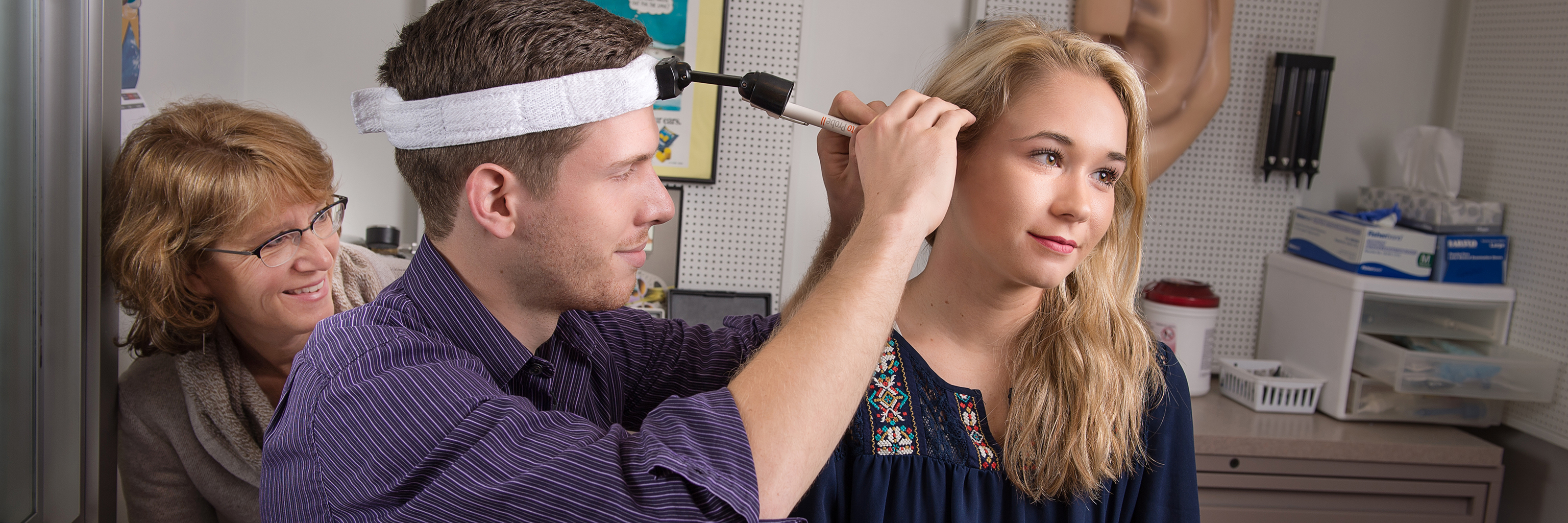M.A. Speech-Language Pathology career options
The M.A. in Speech-Language Pathology prepares students for diverse career paths. Speech-language pathologists (SLPs) work to prevent, assess, diagnose, and treat speech, language, social communication, cognitive-communication, and swallowing disorders in children and adults. Work environments may include, but are not limited to, educational settings (early intervention, preschool, K–12 schools, colleges and universities), medical settings (hospitals, outpatient offices, nursing homes, home health), private practice, corporate speech-language pathology, local, state and federal government agencies, public health departments and the uniformed services.
Upon completion of the degree, clinicians complete a professionally mentored nine-month Clinical Fellowship (CF). According to ASHA, the clinical fellowship is designed to help you integrate and apply theoretical knowledge from your academic training while evaluating your own strengths and limitations. You work to develop and refine clinical skills consistent with the SLP Scope of Practice, advancing from the role of constantly supervised practitioner to that of independent practitioner.
Additional information about career opportunities may be found on the website for the American Speech-Language-Hearing Association (ASHA).

 The College of Arts
The College of Arts